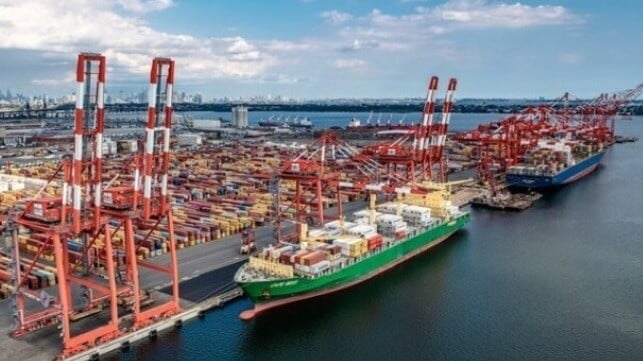Study: Cold-Ironing Could Significantly Reduce Port Emissions

U.S. ports could reduce health-related emissions by meaningful amounts by installing shore power connections, according to a new study from the International Council on Clean Transportation. The organization believes that its new paper is the first comprehensive emissions screening for at-berth vessels at all major American ports.
The study looked at AIS data to identify all vessels berthed within five miles of each port area over the span of a year. Using industry data on vessel equipment and capacity, ICCT calculated out how much each ship's auxiliary engines (not including main engines or boilers) emitted over the span of each port stay. Based on 2019 data, vessels at berth in American seaports released about 27,000 tonnes of NOx, SOx, and PM, plus 1.4 million tonnes of CO2. NOx, SOx and particulate matter have adverse effects on health in communities with high air pollution, and some ports - particularly in Southern California - have worked for years to reduce this impact.
Based on proximity to low-income communities, and regional levels of total air pollution, the ICCT identified seven priority port cities that would benefit most from cold-ironing: New York and Los Angeles (priority one); and New Orleans, Seattle, Galveston, Houston and Oakland (priority two). Many of these seaports already have some degree of shore power installed, like LA and Long Beach, which have equipped nearly 100 berths between them.

that matters most
Get the latest maritime news delivered to your inbox daily.
Taken together, ships at these seven top-priority ports emitted nearly 10,000 tonnes of health-related pollutants while at berth in 2019, according to ICCT - and that figure could be reduced with more cold-ironing.
"Any of the seven priority 1 and 2 ports could consider investing in port electrification, such as shore power, that specifically targets the highest emitting ship types," concluded ICCT. "Federal funding available through legislation like the BIL or the IRA can help ports make investments to meet their decarbonization goals and assist the transition to port electrification."
